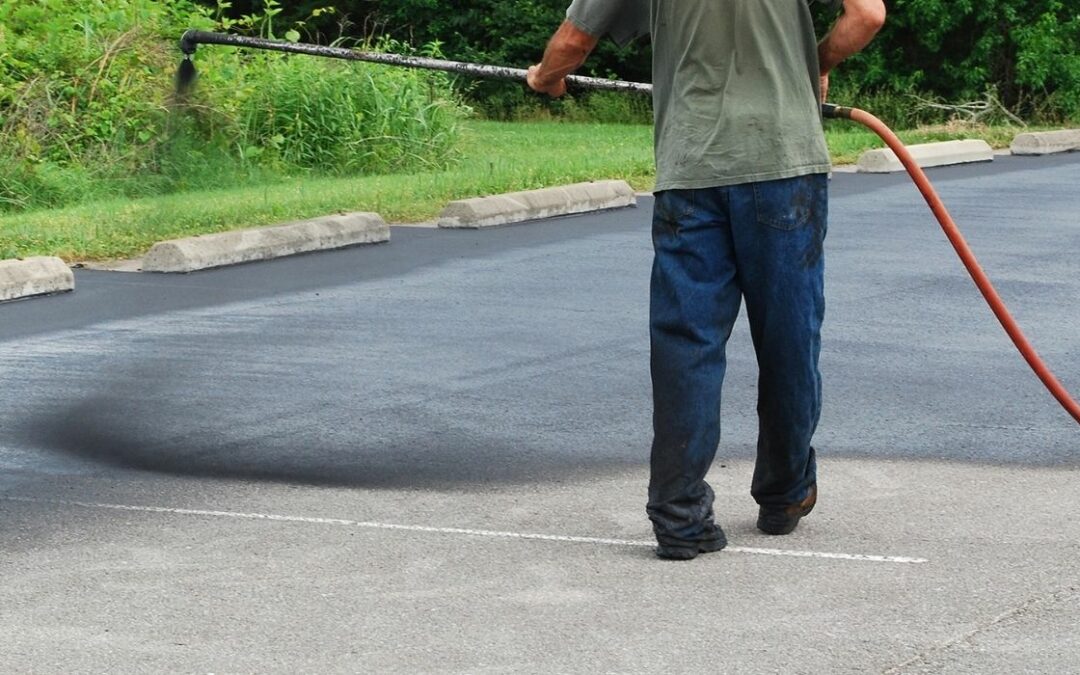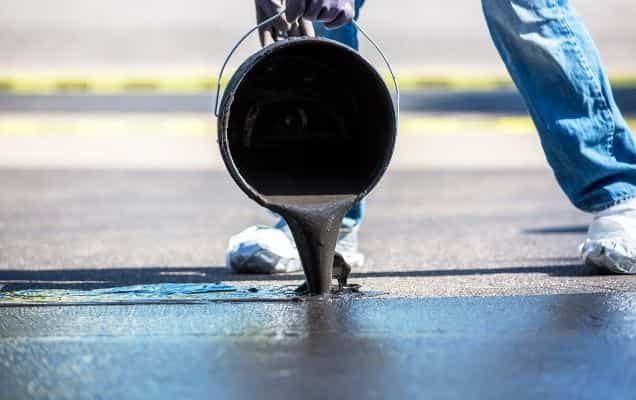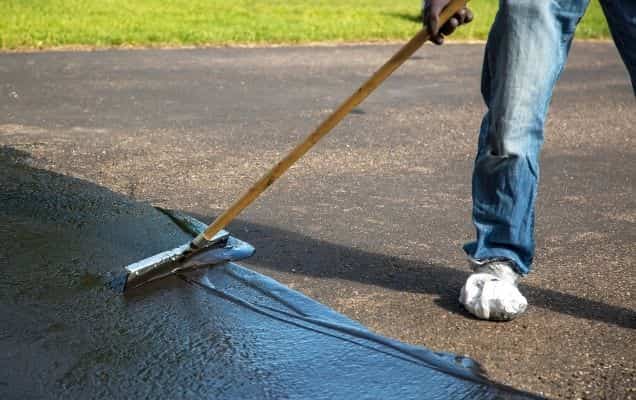The discussion of pros and cons between coal tar-based and asphalt-based seal coat materials is once again a hot topic within the industry. We find ourselves debating long-held industry tradition and a deserved feeling of “if it’s not broke don’t fix it” with the reality that technologies exist that can actually improve on a good thing.
Throw in what has become a massive environmentally-conscious “Green” movement, and you’ve got the makings of a perfect storm of circumstances that threatens to turn the seal coating industry on its head. So, coal tar vs asphalt-based sealcoats, what should you pick?
Coal Tar Vs. Asphalt Sealcoats: A Short History
Whether you’re a sealcoat veteran, or one of the many young up-and-comers in the business, you have a preference between the two – and opinion to back it up. Much about our opinions of the differences between the two are based on our personal experiences and those who have mentored us in the craft.
In one corner we have coal tar – which has remained virtually unchanged in composition since it was first used prior to World War II. In the other corner; asphalt – introduced as an alternative to coal tar in the 1980’s.
Both materials have their strong points, and both materials have their drawbacks. What’s important to our businesses, our livelihoods and to our industry is that we make the effort to familiarize ourselves with the materials we use and how to apply them, and then educate our customers in the principles and methodology of our trade.
What is Coal Tar Sealcoat?
Coal Tar based sealcoats have traditionally been seen as the standard for asphalt sealcoating east of the Rockies. The main component of the first sealed roads, coal tar was formerly used as one of the primary component of pavement surfaces, when mixed with ironworks slag. There are not many differences between (base) coal tar sealers – solids ratios, composition, performance – are relatively even.
A contractor can expect to see minor differences in material color, durability and performance between manufacturers, but most differences occur once sand, water, polymers or other additives are introduced into the mix.
For more information, you can read the basic concepts of refined coal tar based sealcoatings,
What Are the Pros and Cons of Using Coal Tar Sealcoat?
Coal tar sealcoat is known for its hard, durable film, deep dark color and increased fuel resistance. It’s also known as an easier material to work with than is asphalt-based, due in part to it being more forgiving in marginal weather/environmental conditions. Water dilution ratios are also greater with a concentrated coal tar sealcoat than with asphalt sealcoat.
Once fully cured, the material forms a very hard film that can become brittle and unable to flex with the asphalt below it, causing cracking. Prior to curing, coal tar sealcoats are more prone to power steering marks while the volatiles are released.
They will also emit a strong odor and fumes that – especially in direct sunlight and high heat – can cause skin irritation until cured. The material is also known to emit yellow oils that will stain most surfaces.
Environmentally, coal tar sealcoat is known to have high levels of PAH’s and has recently come under fire as a carcinogen in humans and the cause of increased mortality in certain water life. This movement has led to banning of coal tar sealcoats in a number of locations, most recently Washington D.C., Washington State and Suffolk County New York (Long Island).
What is Asphalt Sealcoat?
The past few decades have seen the growth of asphalt sealcoat as a viable – and to some, better – alternative to coal tar.
Principally developed to make up for coal tar’s shortcomings, with the belief that a sealcoat manufactured of the same base element of the surface it’s protecting is more compatible and able to sustain for an extended period, asphalt sealcoats have gained in popularity in the industry – by both contractor and end customer.
There are different types of asphalt sealcoat to suit different conditions.
What Are the Pros and Cons of Using Asphalt Sealcoat?
They have negligible PAH levels, and are considered much more environmentally safe. They are faster drying with no skin irritation or strong smell, are more flexible (no check cracking) and will not stain surfaces like coal tar can. Aesthetically, they dry with a blacker, matte finish.
To their negative, asphalt sealcoat require additives to match the durability and fuel resistance of coal tar, and are not as forgiving in cooler temperatures. Manufacturers recommend specific mix and application specifications that must be adhered to in order to achieve optimum results.
The prescribed dilution of sand and water is essential to the long-term performance of asphalt sealcoats, as is adherence to guidelines regarding weather and environmental conditions. The manufacturer’s specification/technical data sheets will include these guidelines.
When properly mixed and applied, most asphalt sealcoat can be expected to last as long as or longer than a coal tar sealcoat. It is also important to note that polymer modification in the manufacturing process will negate the need for post addition of additives, and will provide the contractor with a material that is comparable to coal tar.
If you want to find out the cost of using an asphalt sealcoat, we have an in-depth asphalt sealcoating cost guide.
Coal Tar vs. Asphalt Sealcoat, which one is better?
In the end, both materials will perform only as well as how they are manufactured, mixed and applied. To ensure our customers are making the best decisions for their properties, we must educate ourselves on the materials and products we are applying, and convey that information.
There are numerous free sources of information and education within our industry, both on line and in print, which can help you in better understanding the materials you use to seal coat. You can also sign-up for a free Asphalt Contractors Course.





